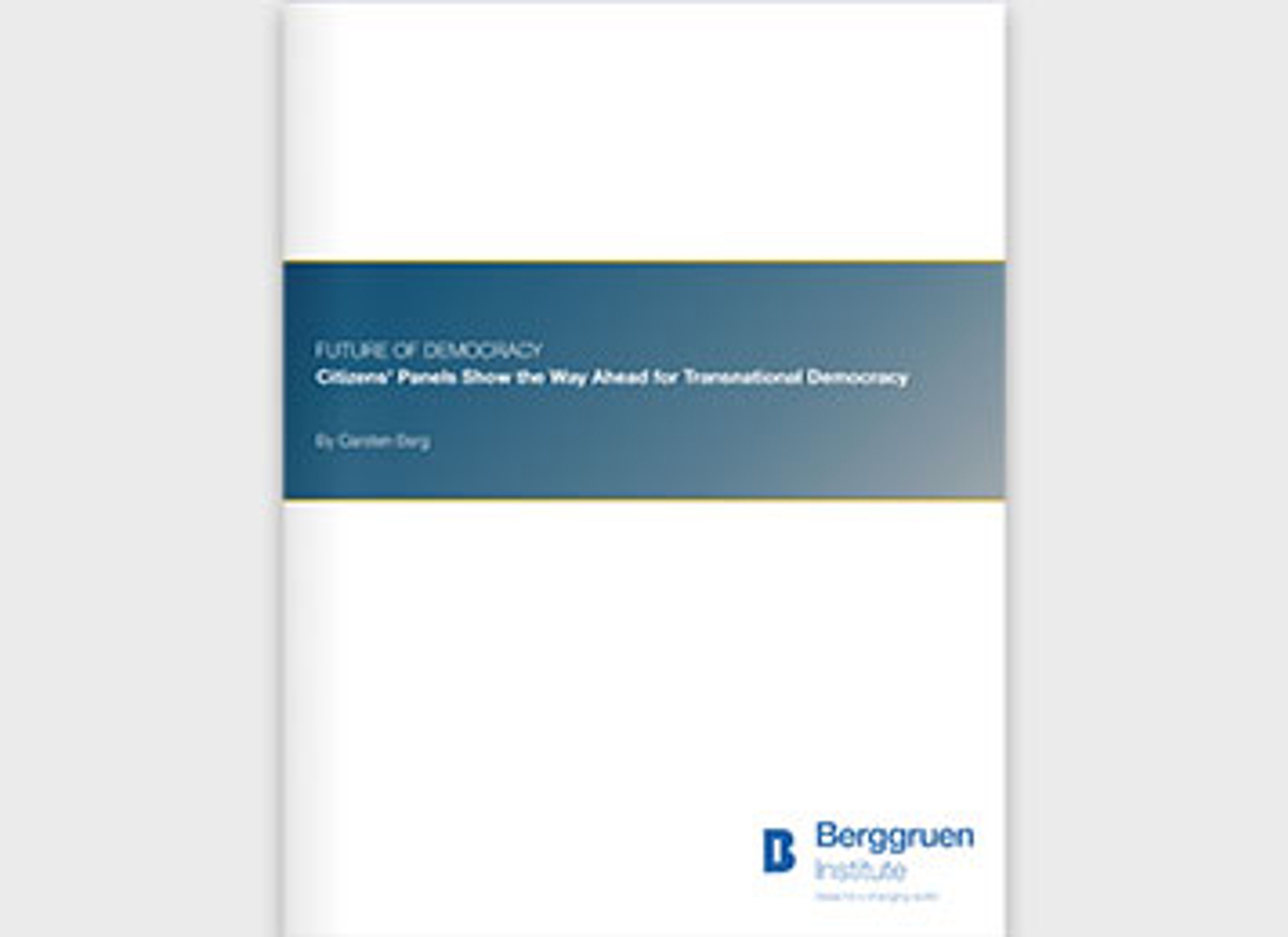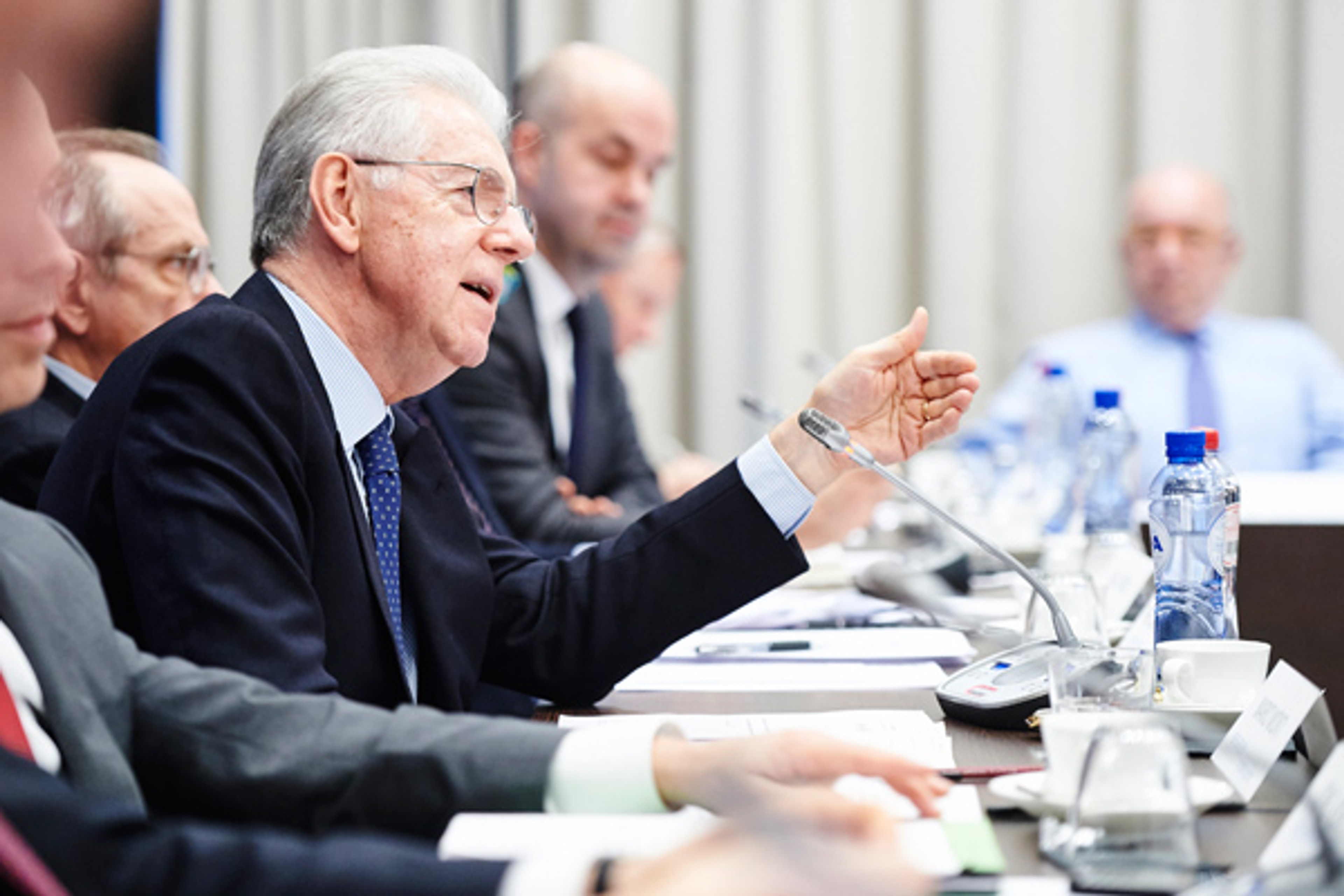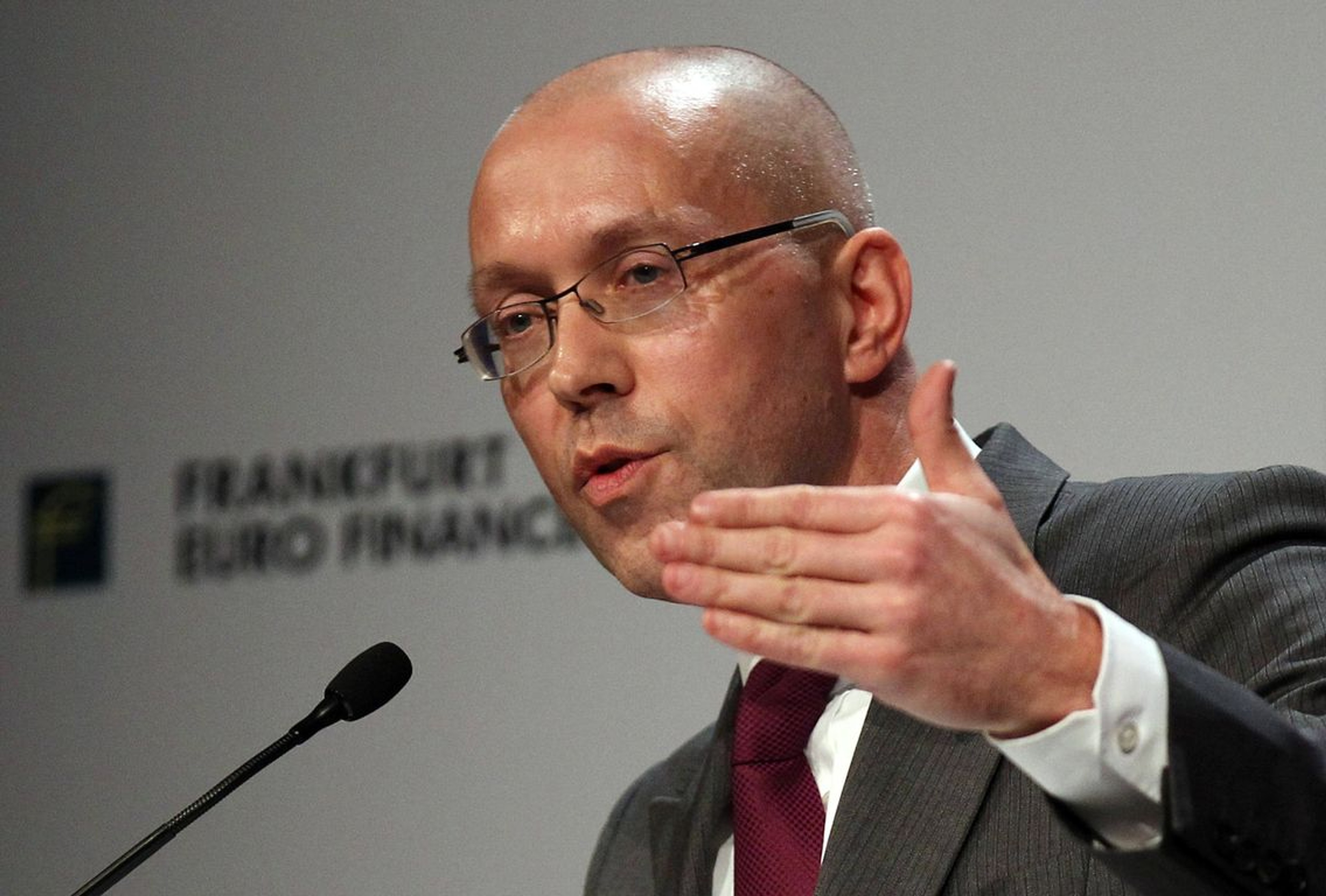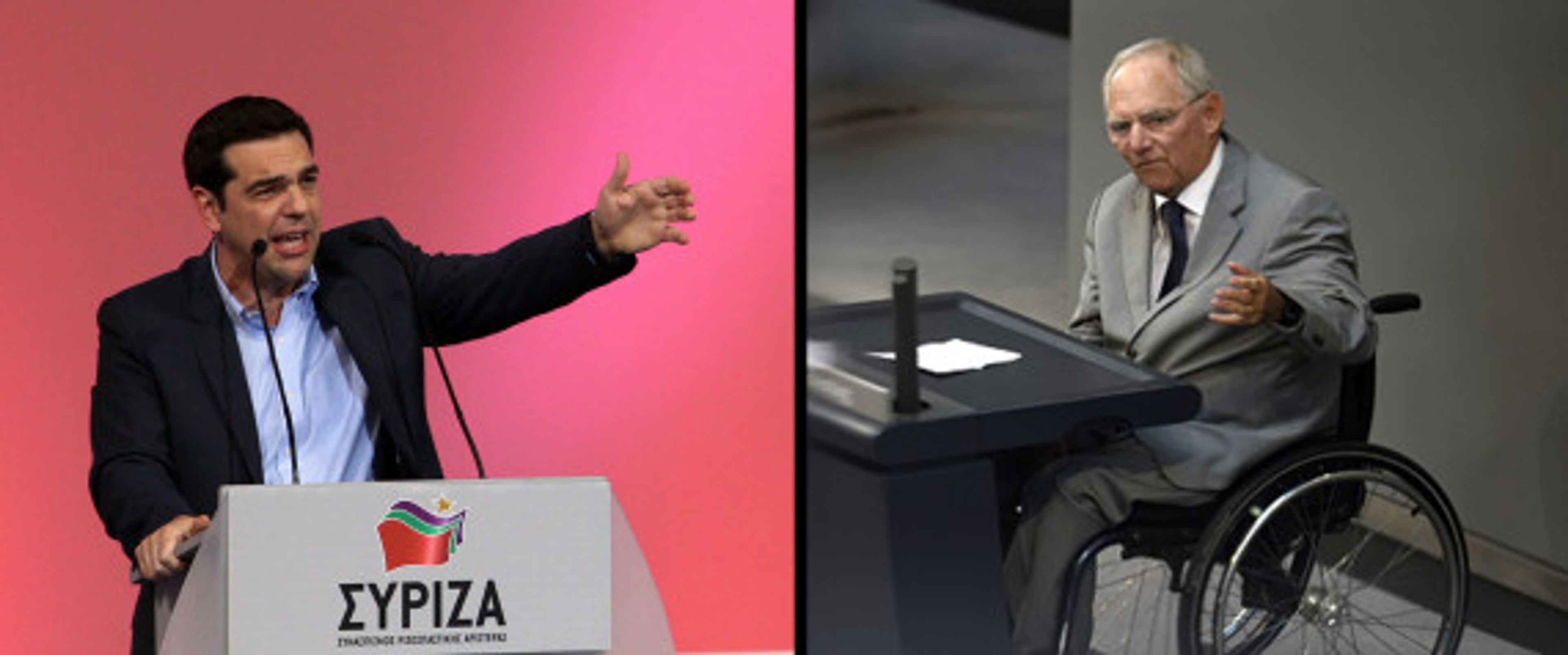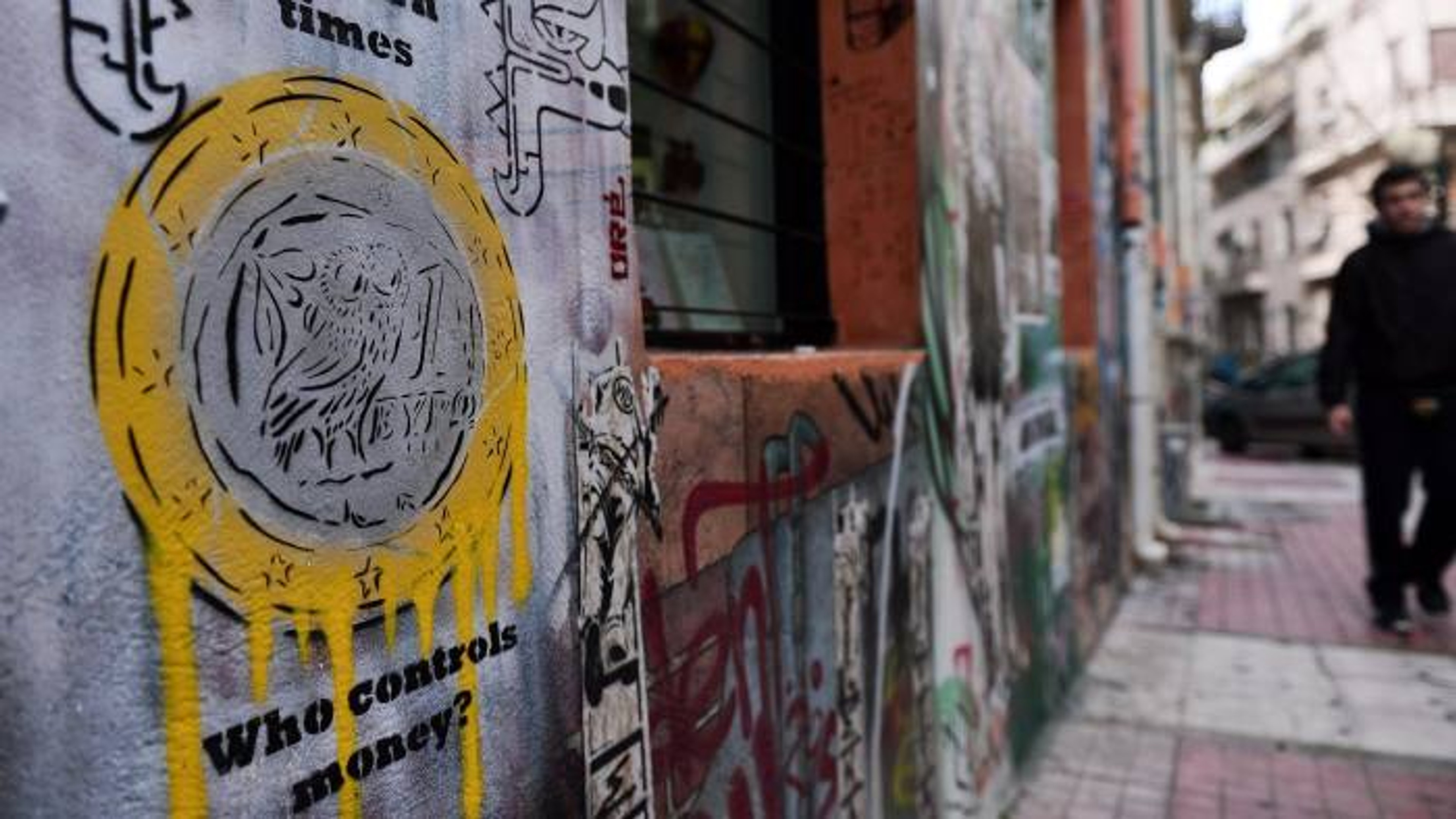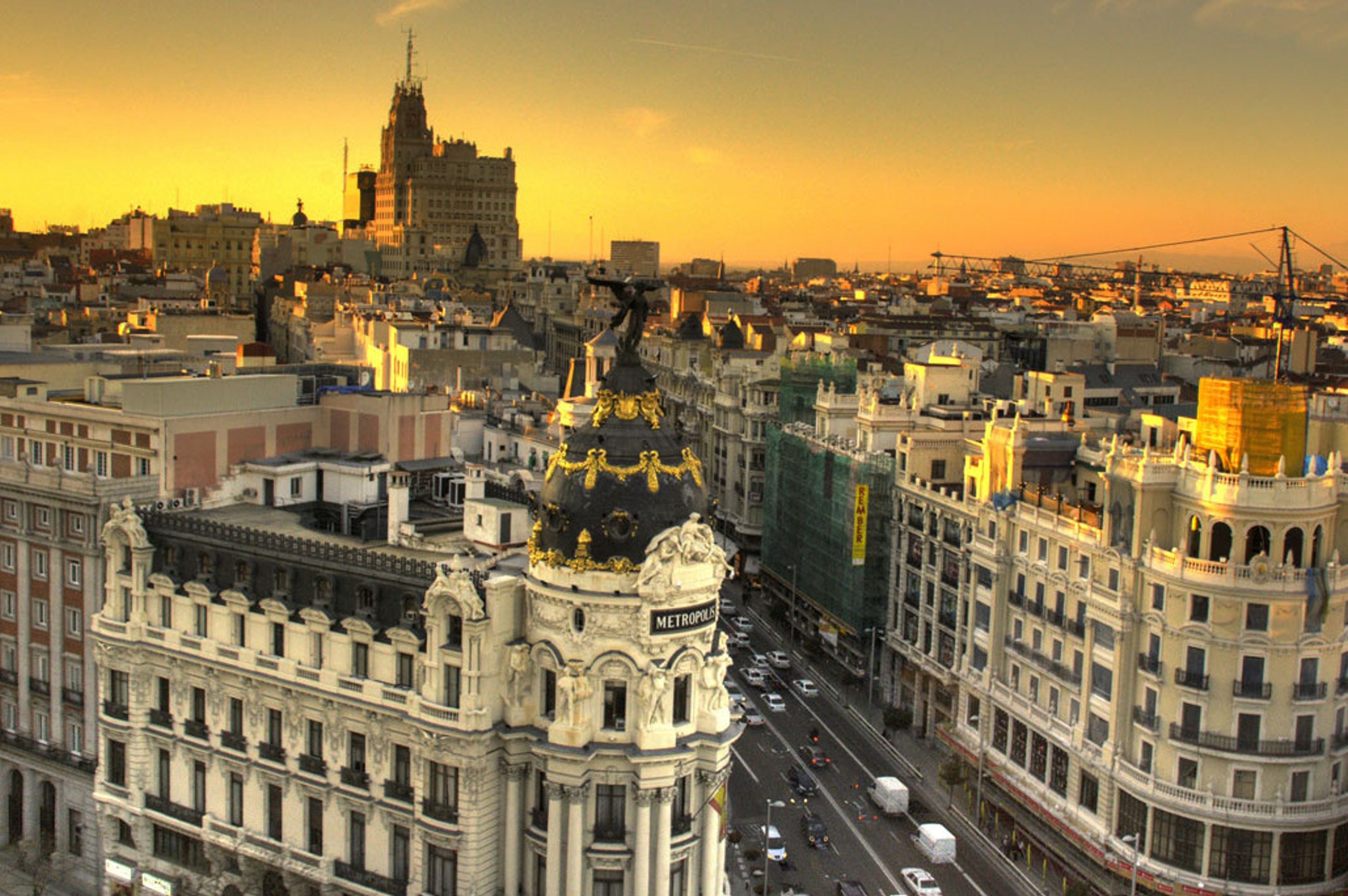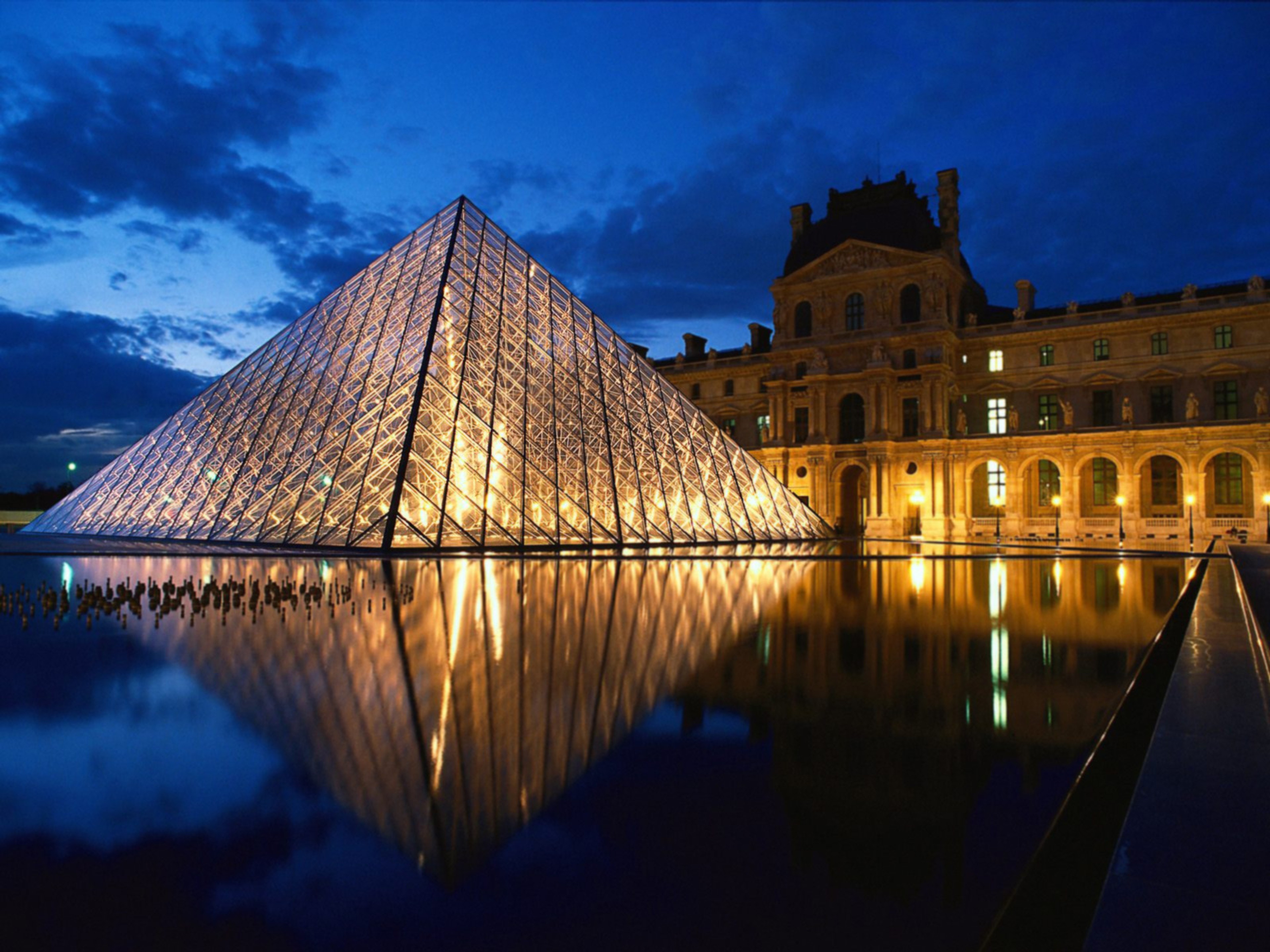Town Hall Meeting: Europe Beyond the Crisis
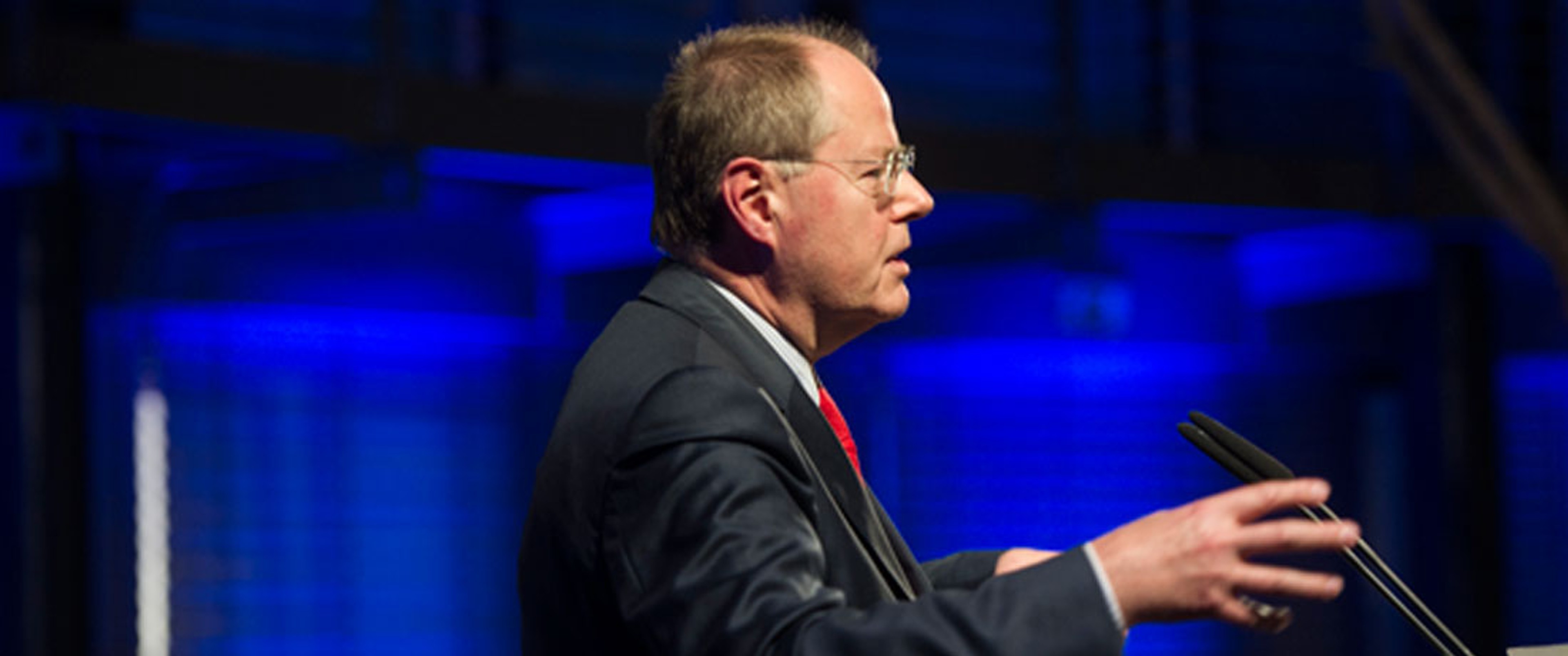
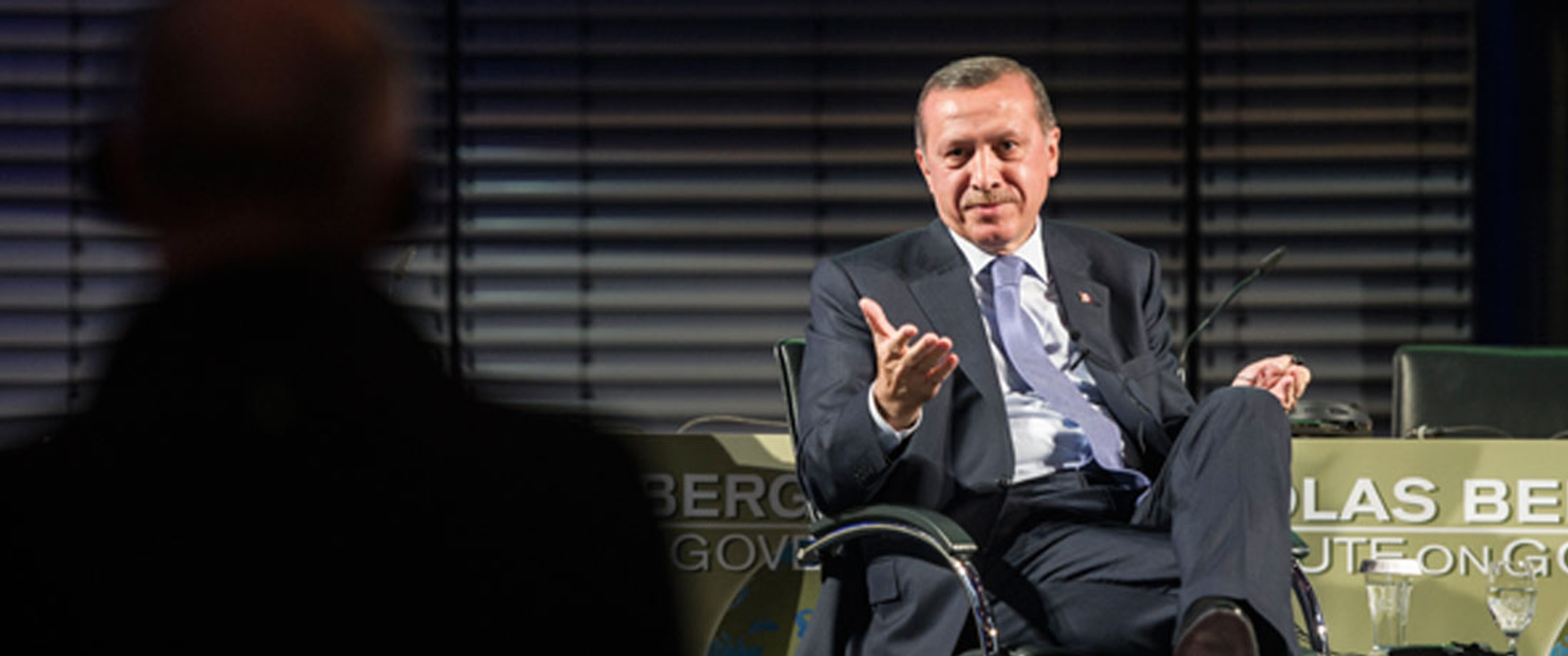
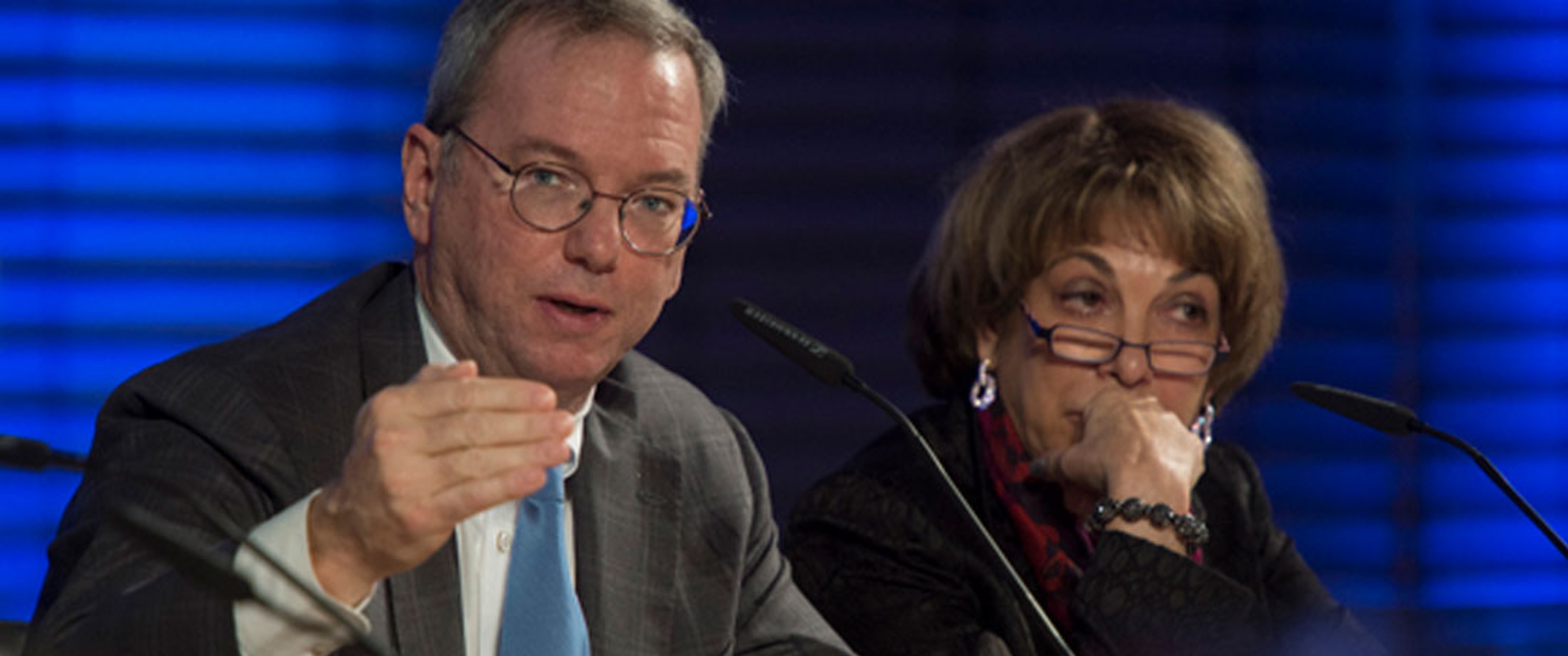
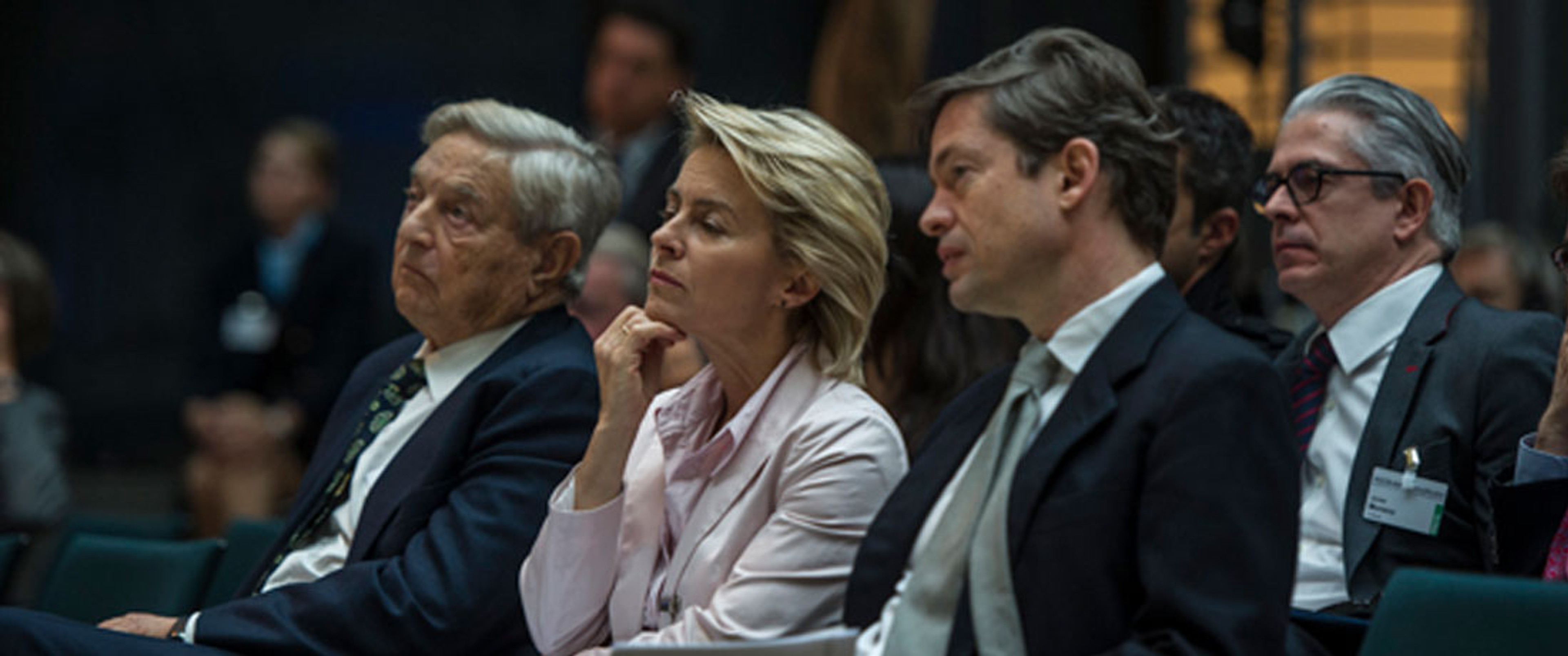
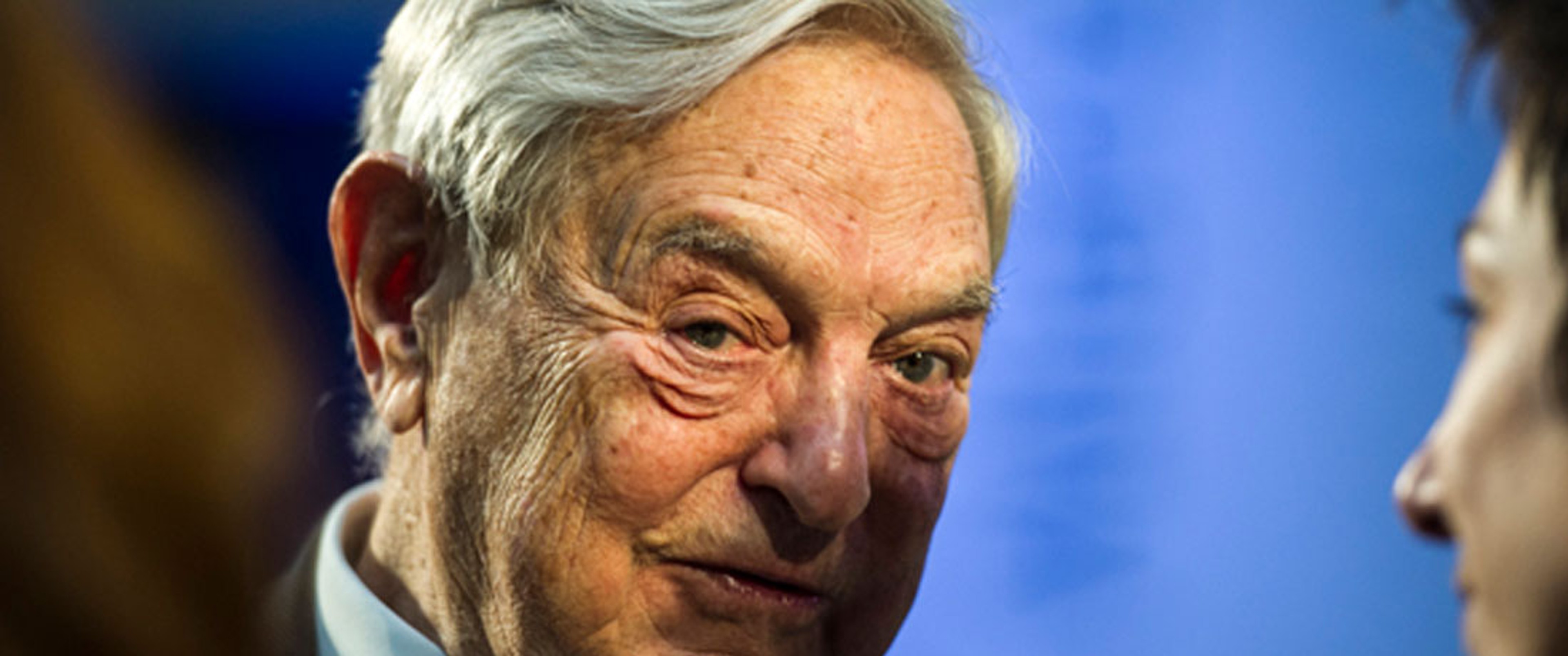
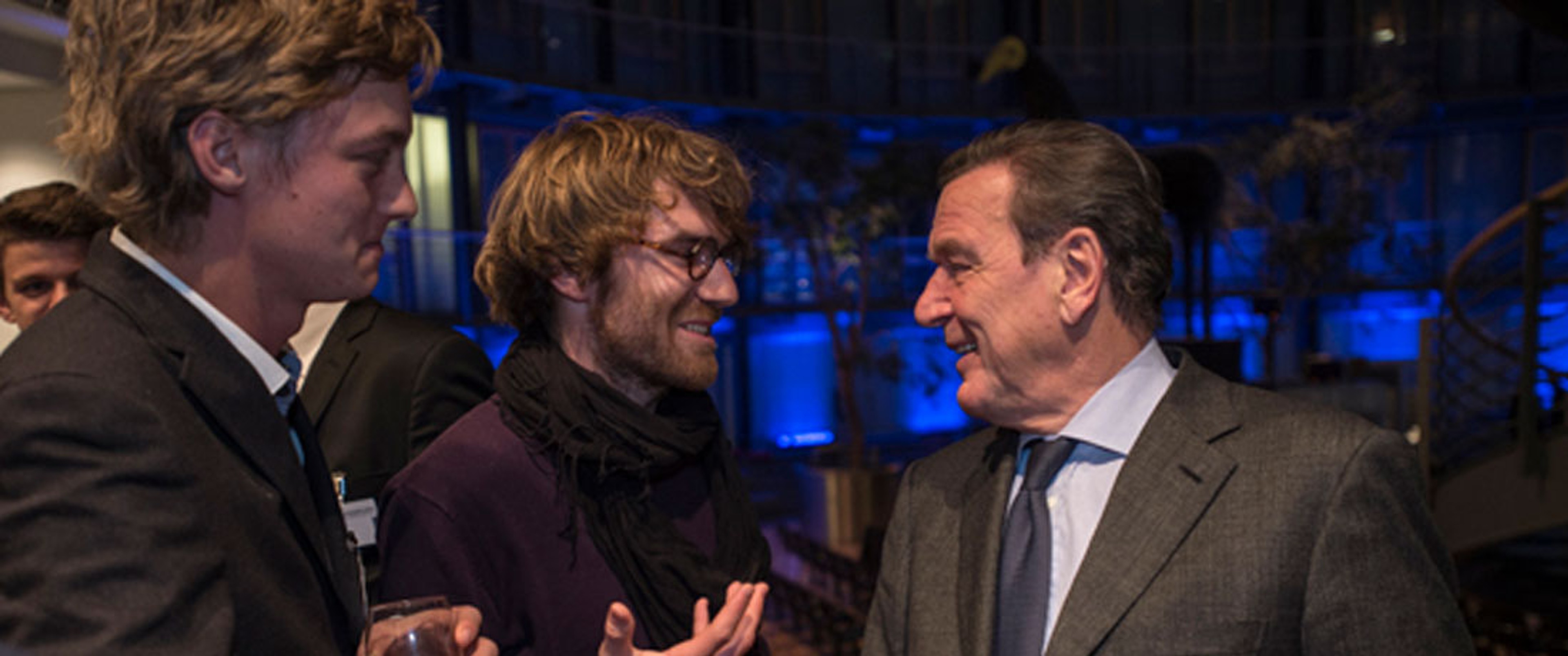
Key Documents
• Tony Blair speech
• George Soros speech
• George Papandreou speech
The Berggruen Institute’s Council for the Future of Europe met in Berlin on October 29 and 30, beginning with private presentations by George Papandreou (who prepared a paper for the occasion) and council members Jean Pisani-Ferry and Jakob Kellenberger. At lunchtime, council member Tony Blair gave a major speech on the future of Europe, including his proposal for a directly elected president of Europe. The speech was very widely covered in the English-language press.
In the afternoon, Mr. Blair, Mr. Papandreou, Peter Sutherland, Gerhard Schroeder and Felipe Gonzales joined in a media roundtable discussion with just over a dozen European editors and reporters, including representatives of Le Monde, El Pais, Bild, Frankfurter Allgemeine Zeitung, Corriere della Sera, Die Zeit, Die Welt, the Financial Times, and the Economist
The discussion ranged from the practical political challenges faced by Chancellor Angela Merkel and President Francois Hollande to the urgency of a European banking union and the need for, as Mr Papandreou put it, a “politics of hope” to replace the “politics of fear” that has been emerging in Europe.
That evening, at a private dinner, former German foreign minister Frank-Walter Steinmeier described a Europe that, lacking a clear sense of direction and purpose, might well be drifting toward disaster. Less prescriptive than analytical, his speech gave a rich sense of Europe’s current predicament.
Europe beyond the Crisis
The Berggruen Institute’s all-day town hall, “Europe nach der Krise” (Europe beyond the Crisis), began at 9 Tuesday morning. The event was broadcast live at the town hall’s dedicated website, myropa2012.de, an online feed that was embedded also by newspaper sites in Spain, Switzerland and Germany, enabling users of those portals to watch the proceedings there. Portions of the meeting were also uploaded to the myropa site and made available to media outlets for immediate download to their own sites.
Finally, the town hall was tweeted live and followed on Facebook; by these means, it was possible to watch the entire event online and send comments and questions in real time, which were then relayed to speakers and participants in the meeting room.
An online community that had grown up at myropa2012 before the town hall – recording hundreds of Wunsche (wishes or desires) for Europe, mostly from younger Germans – participated virtually in the town hall, while more than 300 people, about half of them students, attended the event itself at the Allianz Forum on Pariser Platz. The program was organized as a series of panels moderated by Dunja Hayali and Andreas Korn, along with several speeches.
The town hall began with a speech from Germany’s finance minister, Wolfgang Schauble, followed by a discussion on paths to political union among Schauble, French finance minister Pierre Moscovici, European Parliament president Martin Schulz and World Trade Organisation head Pascal Lamy.
Schauble and Moscovici held a private bilateral meeting after the discussion then held a small press conference on the sidelines of the town hall.
A second panel, on repairing Europe’s democratic deficit, featured George Papandreou, Felipe Gonzalez, Joschka Fischer, Guy Verhofstadt, and German legislator Phillip Missfelder. The morning session was brought to a close by George Soros, who gave his analysis of the tragedy of the euro and announced an initiative to help Greeks and non-Greek refugees in Greece through “solidarity houses.”
Council members heard from Otmar Issing and Jacques Attali at a private luncheon, then joined the town hall audience for an intimate discussion with Helmut Schmidt and Jean-Claude Trichet, moderated by Nicolas Berggruen.
This was followed by a vigorous discussion on Europe, jobs and economic growth with German labor minister Ursula von der Leyen, Polish central bank president Marek Belka, and the opposition German Social Democratic Party’s candidate for the chancellery, Peer Steinbruck. Mr Steinbruck gave a speech outlining his vision of Europe following the panel.
After a break, guest moderator Christine Ockrent introduced a discussion on Europe as viewed by investors from outside; the panelists were Pakistan’s former prime minister (and international banker) Shaukat Aziz, Google executive chairman Eric Schmidt, economist Laura Tyson and investor David Bonderman.
Gerhard Schroeder then gave an address on the necessity of reforms across Europe, similar to the Agenda 2010 reforms that he had pushed as German chancellor and which laid much of the ground for Germany’s relative prosperity.
After some concluding remarks from Nicolas Berggruen and a brief reception, Turkey’s prime minister Recep Tayyip Erdogan arrived and gave a forceful speech on Europe and emerging markets, with special reference to Turkey. He emphasized that Turkey remains eager to shoulder the burden, as he said, of European Union membership. He announced Turkey’s willingness to provide aid for European countries that are suffering in the crisis. He pointed out that the process of integrating Turkey into a European institutional framework had begun nearly fifty years ago and he suggested a final deadline for its completion in 2023.
That evening, some council members gathered for a private closing dinner, where the events of the past two days were discussed and several issues debated, in particular the place of France in the evolution of Europe’s political institutions and its economy.
Themes and Conclusions
Several themes and perceptions dominated the two days of debate. First was a widespread recognition that Europe had to extend its own unity if it were to retain a strong international role. None of its constituent states, on current economic and demographic trends, could hope to play a large global role as an individual nation; therefore unity was a precondition for Europeans to continue carrying international weight.
Second, participants all seemed to accept that Europe’s crisis response had led to the dominance of a few strong economies, above all Germany’s, in terms of shaping Europe’s present and near-term future. This “intergovernmental process” was borne of circumstance rather than intention or democratic policy-making. Some participants believed it nonetheless represented the basis for an evolving European governance, with Germany required to take the lead. Others felt that Europe was drifting away from democracy and toward de facto rule by economic great powers. All agreed that rule by intergovernmental process had become a fact of current European governance and could not be ignored as merely circumstantial.
There was a strong consensus among council members and most panelists that recent measures by the European Central Bank – assurances that it would do whatever was necessary to preserve the euro, and promises of Outright Monetary Transactions as needed to demonstrate to markets the permanence of the euro – were not definitive, but rather gave policymakers a limited amount of time in which to restore the credibility of eurozone and EU decision making. Participants over the two days argued strongly that this respite should not be wasted.
At the same time, most participants argued that structural changes should also be pursued in the relatively near term: the period from now through the 2014 Europarliament elections. There were strong calls – from Schauble, Blair, Papandreou and others – for an elected European executive.
The role of France and the changing balance of Franco-German relations were a constant thread through both days.
Finally, and relatedly, there was continuous discussion of whether the process of European unity was to be shaped principally by economic forces, with politics reacting, or by political decision-making that, through government, could decisively shape the landscape in ways that reflected the democratic will of Europe’s citizens as well as the preferences of markets.
